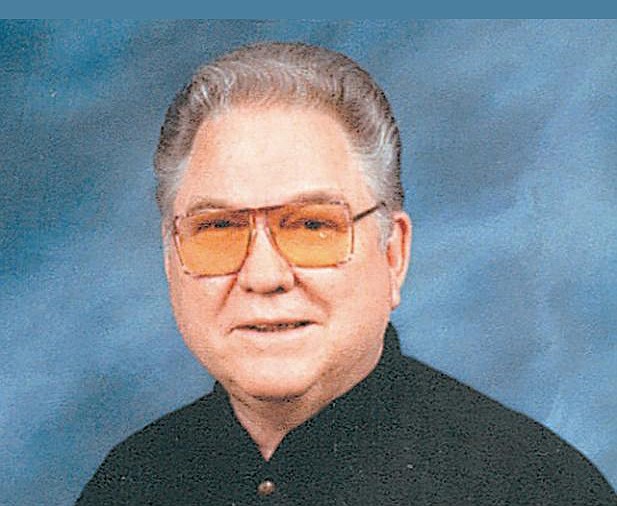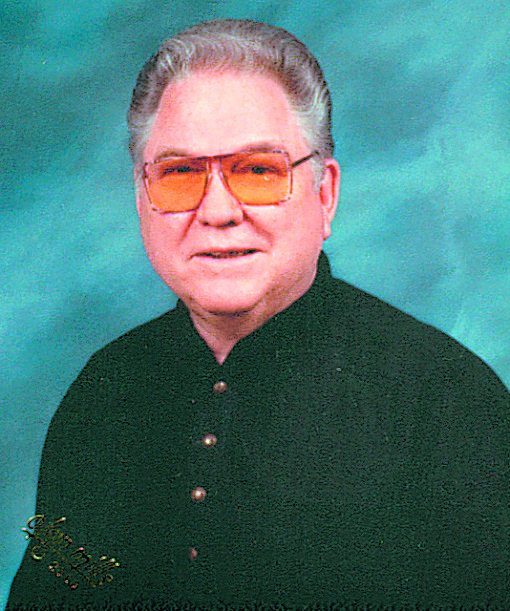Hamilton County's very first county executive, Dalton Roberts, who led the transition to a new form of government, pushed to modernize the largely rural county, and picked a mean guitar, died Wednesday at age 82.
Roberts will be remembered as "a smart, diligent, committed individual for the development of our county," said the Rev. Paul McDaniel, who was elected to the Hamilton County Commission in 1978, at the same time Roberts became the first county executive.
More Info
Services for Dalton Roberts will be announced later by Turner Funeral Home.
Also read
* Sohn: Dalton Roberts, a do-something dreamer, will be missed * Greeson: Rest easy, Dalton (even with Trump being Trump)Dalton Roberts... in his own words * How writing a song changed my reality * Going the extra (crazy) mile * Magic of 'mater sandwiches
Former Chattanooga mayor Ron Littlefield worked and sparred with Roberts for years as a city planner and elected official.
"Even though as city and county officials we had differences, we worked together on the important things: the riverpark, the network of greenways and walkways the younger generations take for granted," Littlefield said.
"He was a great guy to work with, and, occasionally, he was a lot of fun to be on the other side of the issue from. He was frequently controversial and always interesting."
The self-proclaimed country boy who waxed poetic over "'mater sandwiches" each summer in his longtime Times Free Press column was a forward thinker whose chosen task was moving the county ahead in education and economic development.
Roberts never called himself a politician, even though he won four elections for county executive - the last one unopposed - and openly hoped to be the first mayor of a countywide charter government.
"I don't fit into anybody's definition of what a politician is," said Roberts, who in his country music alternate persona had a minor hit with a little ditty called "Dirty Old Men Need Lovin' Too."
Metro government was one of the goals he missed achieving. There were a few others, but by the time he retired as county executive in 1994, Roberts had helped lay a solid foundation for future growth with four industrial parks: the Chattanooga-Hamilton County Trade Center, recreational development and early steps toward acquiring the former Volunteer Army Ammunition Plant - now the Volkswagen assembly plant site.
"I admire him for some of the steps that he took, his foresight. He had some insights in terms of what the county could be. I think we owe him a great debt of appreciation for the true leadership he gave" in moving the county forward, McDaniel said.
He got behind and eventually oversaw the introduction of a countywide ambulance service, but couldn't persuade other elected officials that government, schools - even sewer services - would be more efficient and less costly if operated countywide rather than by individual municipalities.
Littlefield was pretty much his only ally. As Chattanooga mayor later, Littlefield renewed the push, but his charge broke on the same bulwark.
"I'm sorry he didn't live long enough to see consolidated government come to Chattanooga and Hamilton County. I hope I live long enough to see it," Littlefield said.
Roberts supported all kinds of ideas that were, at the time, dismissed as unwanted or impractical. Some are now reality - like the Tennessee Aquarium and the Riverpark. Others, such as a proposal to build a resort and waterpark on Patten Island in Lake Chickamauga near Harrison, or his 1980 push to use solar energy at the new county workhouse - now Silverdale Correctional Facility - went nowhere.
He fought his enemies - and sometimes his friends - with passion and wit: the Chattanooga City Schools, for instance, for blowing bond money on wrongheaded projects and Chattanooga elected leaders over everything from consolidating the entire government to the city-county sales tax split to how to fund and where to put a trade center. He sued the state for dumping prisoners in county jails. He won.
His ongoing battle with Erlanger hospital was legendary.
Anger over what he saw at the time as fat administrative salaries, overspending and poor management at the public hospital led him to try to amend its governance so the county and the state Legislature would control who sat on the board of trustees. It was bad enough that in 1986, a newspaper editorial castigated him as a "verbal bully" with "clouded judgment" that left him "blind to the potential harm done by his overreaction."
Roberts conceded his rhetoric sometimes crossed over into incivility, but he liked being an instigator just to see what would happen.
"Nobody is going to force me to do anything against my conscience, against my better judgment, when it involves the welfare of the people."
He told a Kiwanis meeting in 1981: "The only town I would ever worry about is [one] where nobody disagrees."
***
Roberts, the son of a Methodist minister, was born Aug. 19, 1933, in Decatur, Ala., but was raised in the rural Highway 58 farm community known as Watering Trough. He attended Tyner High School and Kirkman Tech, then earned a bachelor's degree from Trevecca College and a master's in special education from the University of Tennessee.
He worked in the Neighborhood Youth Corps and served in a variety of roles related to special education. He entered the race for county school superintendent in 1968 but dropped out. After a stint as manpower staff director for Chattanooga Mayor A.L. "Chunk" Bender, he announced a run for city commissioner of health and education in 1970, but decided not to run.
He went to work for then-County Judge Don Moore but Moore fired him in 1977. Roberts sued in Chancery Court, which overturned the firing and ordered Moore to take him back. On the very day he returned to work, Roberts resigned. He said later he thought Moore had the votes lined up to fire him again.
The Tennessee constitutional convention of 1978 ushered in the new executive-commission form of county government. Roberts defeated Republican Tom Moore that year and was re-elected three times before deciding not to run again.
He was always active as a musician and storyteller, but that part of his life really flowered after he got out of politics.
"He had the wildest sense of humor and he could write the silliest songs," said his longtime friend and picking partner, Tom Morgan of Dayton, Tenn.
Morgan said some of his best times with Roberts came when they went to schools and played music for the kids.
"We had a wonderful rapport with as much as 750 kids on a gymnasium floor to share the joys of acoustic music."
Roberts' Times Free Press column was a forum for everything from tomato sandwich recipes to political analysis and was a popular feature in the Lifestyle section. A consistent theme was, be who you are, live your life and don't worry about what others think.
"If you want to do anything, somebody's going to make fun of you," he told Red Bank High School students in 1981.
Upon his retirement, a newspaper editorial said Roberts lived up to his credo.
"He is not insincere. He does not blow with the wind, play it safe, seek to build an empire or connive for personal or political gain.
"He is not in politics to get something, or to be somebody. He is in it to do something.
"You might not agree with it, but he can tell you what it is, and often make you believe in it, too."

